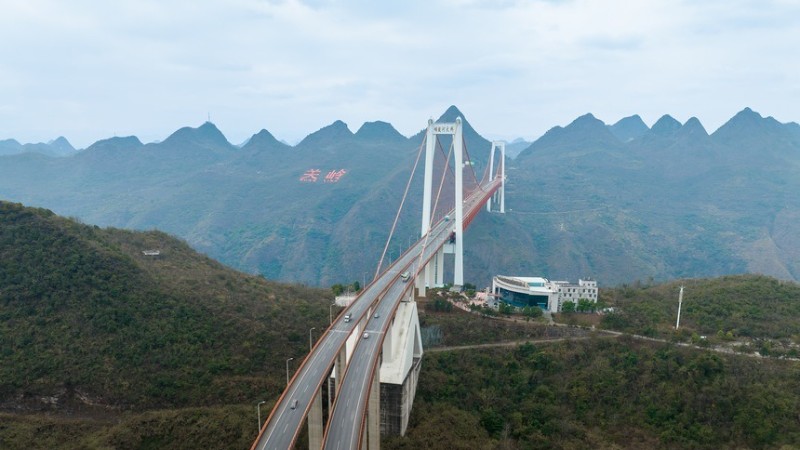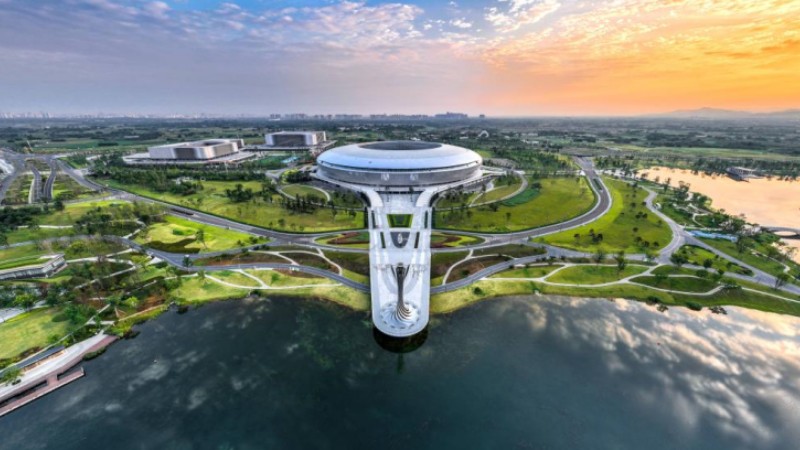Belt and Road Initiative takes China's development dividends to Africa
HARARE, April 23 (Xinhua) -- The Belt and Road Initiative (BRI) is taking China's development dividends beyond the Asian country to the world, ushering in a new era of connectivity for African economies, a Zimbabwean ruling party official has said.
For the past 5,000 years, Africa, Asia, and Europe among others have been advancing human civilization, and the BRI has helped further expand the links between those continents, Christopher Mutsvangwa, secretary for Information and Publicity for the ruling party Zimbabwe African National Union Patriotic Front (ZANU PF) told Xinhua.
The BRI has consolidated relations between African countries and China, in particular deepening infrastructure cooperation, said Gideon Chitanga, associate researcher at the African Centre for the Study of the United States at the University of the Witwatersrand in South Africa.
According to the African Development Bank, Africa's infrastructure investment gap is estimated at more than 100 billion U.S. dollars per year, affecting the living conditions of Africans and the continent's global competitiveness.
Infrastructure is very important to facilitate freight trade in the African continent because the current constraints in air, road, and railway transport have limited intra-African trade, Chitanga told Xinhua.
Indirectly, the initiative also advanced the movement of goods and people between African countries and transformed multilateral relations of African countries by emphasizing the core values of respect for sovereignty and independence from other countries, Chitanga added.
In contrast, the Western-dominated worldview based any relations with African countries on such conditions as the promotion of foreign political value systems, and norms and practices which undermine the sovereignty and independence of other countries and subject them to unilateral hegemonic influences, said Chitanga.
In Zimbabwe, China has become a major actor in bridging the southern African country's infrastructure gap.
The Chinese company Sinohydro in 2018 completed a power boost project at Kariba South Hydro Power Station where it installed two generators with a capacity of 150 megawatts each. Sinohydro is also refurbishing the country's largest power station -- the Hwange Thermal Power Station.
The project is part of Zimbabwe's efforts to find sustainable solutions to its power challenges that are severely curtailing industrial growth and the economy at large.
In addition, China Jiangsu International in August 2018 began upgrading the country's biggest airport -- Harare Robert Mugabe International Airport -- under a loan facility from the China EximBank.
It has brought funding committed to Zimbabwe's biggest airport since 2016, after the completion of the Victoria Falls International Airport expansion, which increased its capacity to 1.5 million from 500,000 passengers a year.
China also funded and constructed the spacious, six-story parliament building in west Harare, as well as handed over a state-of-the-art pharmaceutical warehouse to the Zimbabwean government in last November.
Across the country, China is involved in the construction of local dams and waterworks.
Photos
Related Stories
- Chinese experts help BRI countries grow vegetables in desert
- Feature: In Bangladesh, HK cap giant pulls shared prosperity out of a hat
- Feature: Bangladesh's first green fertilizer factory built under China's BRI nears completion
- Feature: Bangladeshis brimming with joy as BRI railway links Dhaka with southern districts
- Feature: BRI projects deliver promising future for Malaysian youth
Copyright © 2023 People's Daily Online. All Rights Reserved.









